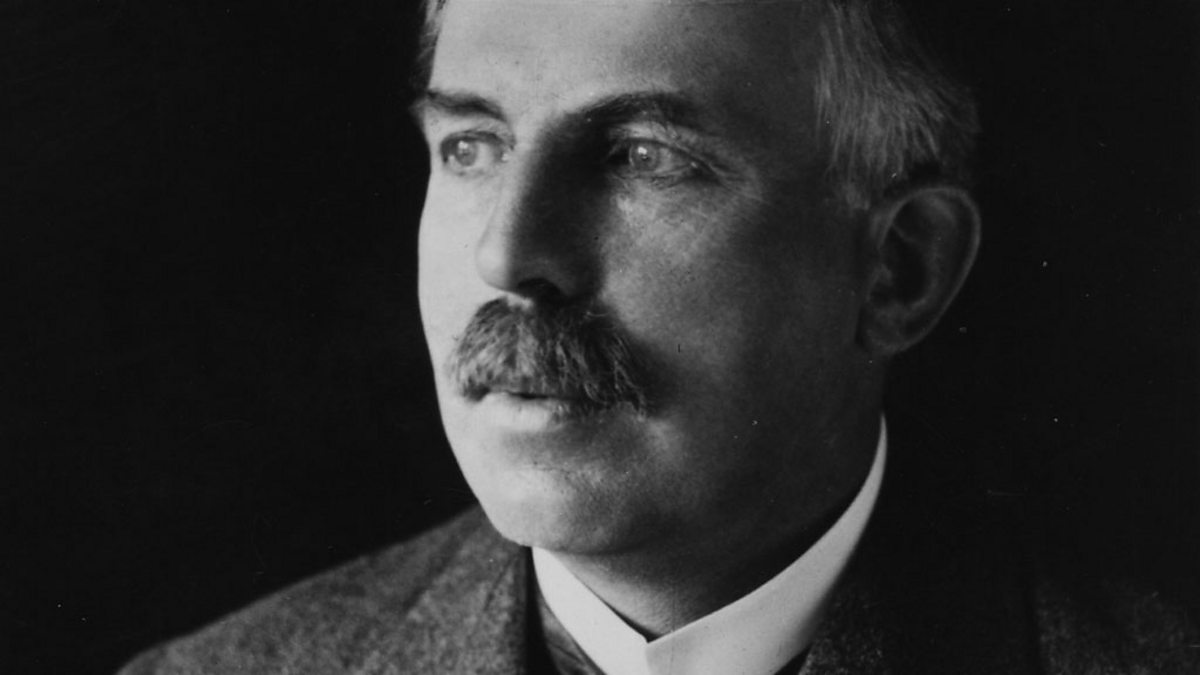Ernest Rutherford was a British chemist and physicist born in New Zeland, who became known as the father of nuclear physics.
Early life
Ernest Rutherford was born on August 30, 1871 in rural Nelson. He was the fourth child out of twelve to James and Martha Rutherford. As a boy, Ernest was surrounded by hard work and discipline, his parents appreciated education and kept it as a number one goal for their children. Ernest enjoyed a childhood typical for children growing up in rural areas of New Zealand. A lot of farm chores and household chores such as milking the cows or gathering fire wood.
Education
Ernest managed to enroll at Nelson College and soon after je was the Dux of the school, played in the rugby team and eventually won one of ten scholarships available for attendance at Canterbury College, University of New Zealand. At Canterbury Ernest demonstrated exemplary conduct and was appointed the president of the debating society, and in 1892 he passed BA in Applied Mathematics, English, French, Physics, Latin, and Pure Mathematics. After failing to find any full time positions as a teacher, Ernest decided to go back to school. Eventually he was awarded a scholarship at Cambridge University in England for postgraduates studies.
Achievements
Ernest Rutherford investigated radioactivity and managed to determine two different distinctive types of radiation emissions which he coined to be Alpha and Beta rays. During his research, Rutherford found out that radioactivity was the effect of spontaneous disintegration of atoms. Using his “half-life” thesis, he managed to determine the age of the Earth, which came to be much older than previously believed. In 1903 Rutherford also named the third type of radiation calling it Gamma rays. One of his greatest achievements was the the Geiger-Marsden experiment in which he participated. During experimentation, Rutherford was in search of alpha particles with high deflective angles. They eventually found a number of Alpha particles that fit the description. It was from this result that Rutherford derived his Rutherford Model of the Atom in 1911 where he describes that a very small positively charged nucleus was orbited by electrons. During his later research of nitrogen conversion to oxygen that he came across hydrogen nucleus which he decided to name proton. While working with Niels Bohr, Rutherford theorized about the existence of neutrons. Rutherford’s theory of neutrons was proved in 1932.
Rutherford was an inspiring man and an unusually large number of his researchers went on to win Nobel Prizes, including:
- James Chadwick
- George de Hevesy
- John Cockcroft
- Ernest Walton
- Pyotr Kapitsa
- Cecil Powell
- Niels Bohr
- Otto Hahn
- Frederick Soddy
- Edward Appleton.
Later life
Rutherford was knighted in 1914. Ernest Rutherford died aged 66 on the 19th of October 1937, the result of delays in operating on his partially stangulated umbilical hernia. His ashes were interred in London’s Westminster Abbey, under an inscribed flagstone near the choir screen in the Nave.
Ernest Rutherford quotes
“All science is either physics or stamp collecting.”
“If your experiment needs statistics, you ought to have done a better experiment.”
“The only possible conclusion the social sciences can draw is: some do, some don’t.”
“We haven’t got the money, so we’ve got to think!”
“I’ve just finished reading some of my early papers, and you know, when I’d finished I said to myself, ‘Rutherford, my boy, you used to be a damned clever fellow.’ ”

